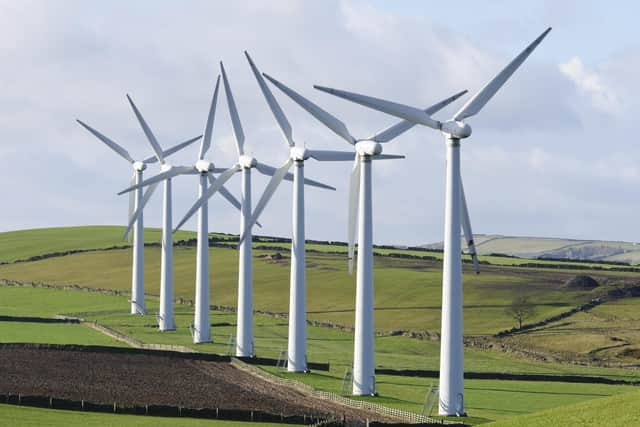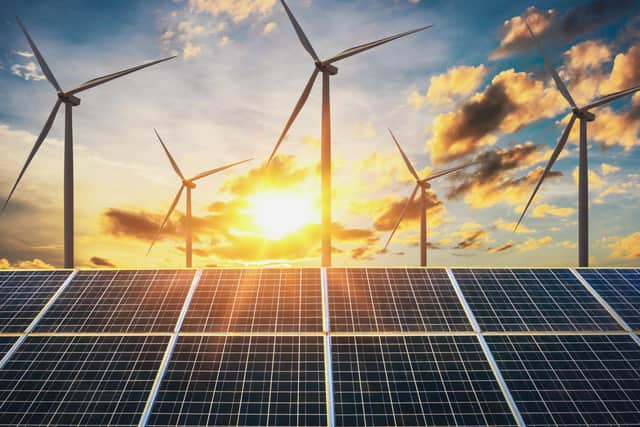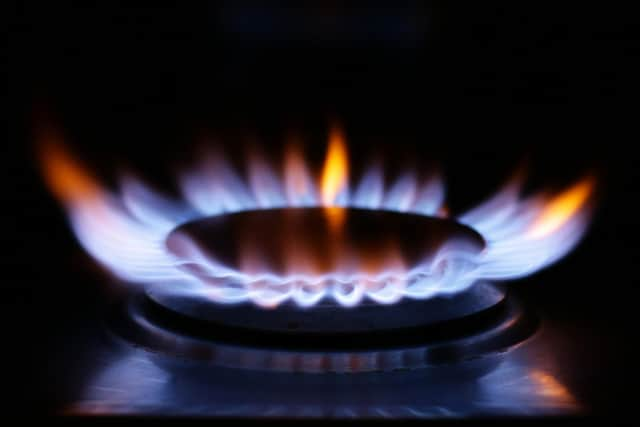Wind farms won’t stop ‘Winter of Disconent’ and ‘three day week’ – Bill Carmichael
The Government seems pretty confident that this won’t happen. Indeed the Business Secretary Kwasi Kwarteng was emphatic when he addressed the House of Commons last week. He said: “There is absolutely no question of the lights going out or people being unable to heat their homes” adding that such thinking was alarmist and misguided.
Advertisement
Hide AdAdvertisement
Hide AdLet’s hope he is right, but one thing looks pretty certain – with gas prices soaring, we’ll all be paying a lot more for our energy this winter, and that will have a disproportionate impact on the poor because they spend a bigger percentage of their income on heating.


Every time governments artificially raise the cost of energy, for example by imposing “green” taxes at the behest of environmental campaigners, more elderly and vulnerable people will die because they cannot afford to heat their homes properly.
“Green” policies don’t seem so nice and cuddly when you think of it like that, do they?
Advertisement
Hide AdAdvertisement
Hide AdBut if the lights do go out don’t let anyone pretend we didn’t see it coming. In fact experts have been warning of our vulnerability to energy shocks for decades and successive government policies have made the problem worse.


Take, for example, our policies towards coal-fired power generation. As recently as 2012, coal burning contributed 40 per cent of the UK’s power capacity. By 2020 – in order to hit some of the toughest carbon emission reduction targets in the world – that figure was down to 1.8 per cent.
Other countries have been far more cautious. Germany, for example, obtains about a quarter of its energy by burning coal and lignite. Indeed Germany has increased its reliance on fossil fuels because the government has given in to demands from environmentalists to phase out clean nuclear power.
That’s right – so-called “green” policies in Germany have resulted in massive increases in carbon emissions through burning the dirtiest fuel on the planet. You couldn’t make it up.
Advertisement
Hide AdAdvertisement
Hide AdHere in the UK the drastic reduction in coal burning has made us very reliant on gas, much of it imported, and we have some of the smallest gas storage capacity in Europe, particularly since the closure of the Rough storage facility off the Yorkshire coast.


And relying on unfriendly countries such as Russia for our energy needs is never going to be a good idea. During the recent spike in demand, for example, the Russian gas company Gazprom simply refused to make up the shortfall by increasing exports.
We are also heavily reliant on renewables, such as wind power, which has increased by a staggering 715 per cent since 2009.
All very well, but what happens when the wind doesn’t blow? Well, last month we found out. Recently we experienced the least windy period since 1961, resulting in a huge reduction in wind energy. Instead of contributing the expected 25 per cent of our energy needs, wind contributed just seven per cent.
Advertisement
Hide AdAdvertisement
Hide AdThe situation became so serious that in September the National Grid asked energy company EDF to fire up the coal-fired West Burton – a power plant in Nottinghamshire, which had been on stand-by.
So renewables are fine – so long as you have a few coal-fired power stations as back-up for when the wind doesn’t blow. But this insurance policy runs out in a few short years. The Government has committed to closing all coal-fired plants by 2024. What happens then?
To make matters worse, all our nuclear-powered plants, which contribute about 20 per cent of our energy needs, will close by the end of the decade, with just one, Hinkley Point C, being built as a replacement.
Putting all our eggs in one renewables basket is a recipe for disaster. Instead we need a mix of energy sources, including wind and solar, with coal as a back-up, and a massive investment in clean nuclear plants to cut our reliance on foreign gas.
Advertisement
Hide AdAdvertisement
Hide AdIf this doesn’t happen then I fear, on one freezing calm night, when the wind turbines are still and the Russians have switched off the gas tap, and we have no coal and little nuclear to fall back on, then the lights will indeed go out. Don’t say we were not warned.
Support The Yorkshire Post and become a subscriber today. Your subscription will help us to continue to bring quality news to the people of Yorkshire. In return, you’ll see fewer ads on site, get free access to our app, receive exclusive members-only offers and access to all premium content and columns. Click here to subscribe.
Comment Guidelines
National World encourages reader discussion on our stories. User feedback, insights and back-and-forth exchanges add a rich layer of context to reporting. Please review our Community Guidelines before commenting.